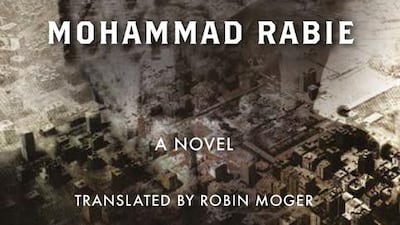Mohammad Rabie's Otared, or Mercury, begins with a murder so horrific that it shocks the reader to attention. Rabie's third novel, shortlisted for the 2016 International Prize for Arabic Fiction, doesn't return to that murder. Yet the deaths remain at the centre of the mystery. We know who committed the nightmarish crime. What we don't understand is what it means for Egypt.
The opening murder occurs at some unspecified "beginning", during a contemporary Egyptian Eid. The rest of the book, in strong translation by Robin Moger, takes place between 2025, January 2011, and AH 455 (AD 1063). The sections set in 2025 are narrated by our murderer, police Captain Ahmed Otared, whose last name means Mercury – the hottest planet and the one closest to the sun. At first glance, the novel reads like an apocalyptic history of a future Egypt, not unlike Nael Eltoukhy's Women of Karantina. In the year 2025, Cairo is a divided city, similar to Civil War-era Beirut. East Cairo is occupied by the Knights of Malta while West Cairo is under the nominal control of the "resistance", led by Egyptian police.
It is a strange and upside-down resistance, led exclusively by the corrupt, who seem to have one tool in their patriotic arsenal: violence. Our narrator, Capt Otared, is one of the resistance’s heroes. He spends two years up in the Cairo Tower working as a sniper. At first he kills high-ranking government officials or other assigned targets. As time moves on, he kills anyone he chooses.
These murders are an outrageous echo of the sniper killings – estimated at more than 800 –that took place in Cairo in January and February 2011. In fact, the police officers in Otared comment on the history of the "Arab Spring". This becomes a little repetitive, as though Rabie fears the reader won't grasp his political commentary. The officers discuss events of January 2011 and June 2013, the Rabaa massacre, and other future massacres. The police of 2025 particularly mock the "reverlooshun".
When the action flips back to January 2011 and centres on a middle-class family, it is at first a relief. We are back in a familiar time, with its familiar values. In this section, four-year-old Zahra has been abandoned at school. Her mother is dead and her father has disappeared. She is temporarily taken in by a kind school employee during the turmoil of that Cairo winter.
But this tender reality soon becomes another horror. We witness the real nightmare of Egyptian lives at the margins, where homeless girls are raped by a homeless man. There is also a surrealist nightmare, where Zahra’s mouth, eyes, and ears slowly seal shut, so that she can no longer experience the terrible world.
When we return to 2025, things have grown yet worse. In this outrageous place, anything might be done in public: rape, theft, murder, suicide. There is a new drug epidemic “karbon”, prostitution is violent and legal, and masks have become part of public life.
During one mass killing, committed by Capt Otared, there is an incantatory naming of the murdered. Often, the reader wants to rebel against the novel’s seemingly endless violence. Yet eventually, our eyes are opened. We realise why this is happening and how the first murder started it all.
There are the occasional lighter moments, as when police mock poets of the "reverlooshun", or when Capt Otared acquires a pet drone. And the epiphany is significant: the violence is not quite what we thought. Yet reading Otared is by and large like having a hand grasping the back of your head, forcing you to look through photos from hell.
M Lynx Qualey is a freelance writer based in Cairo who blogs at arablit.wordpress.com.

